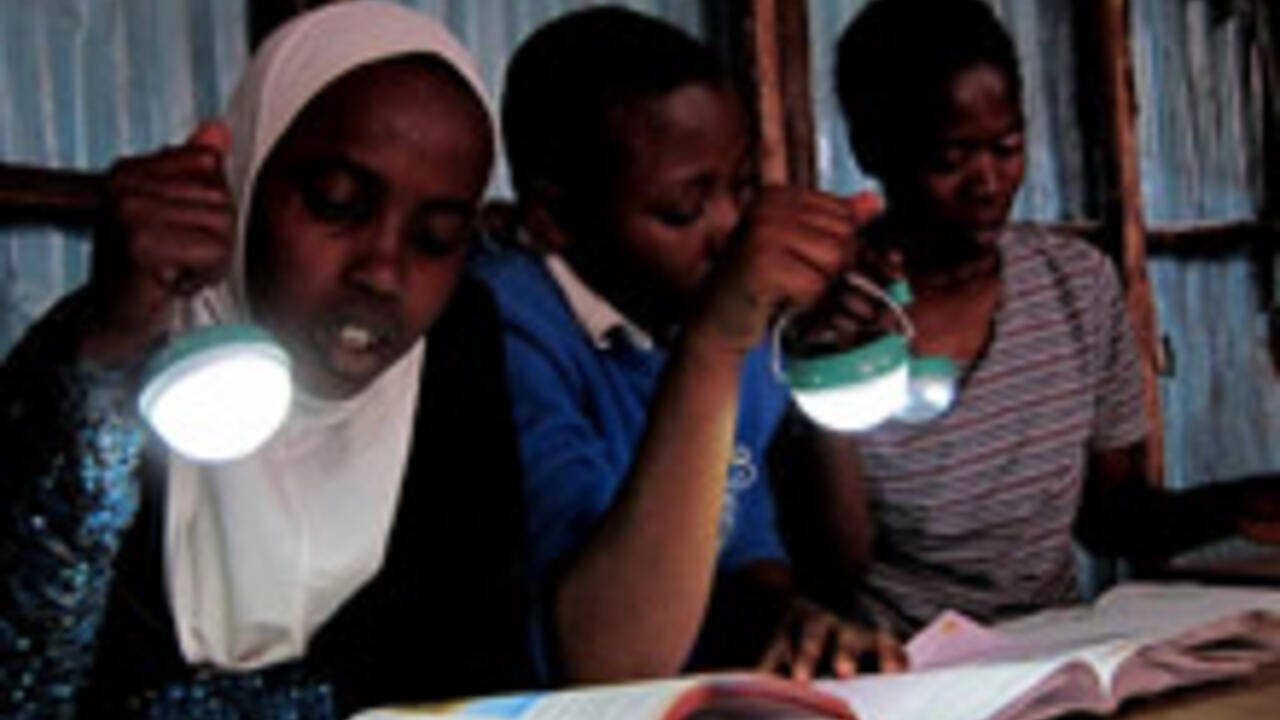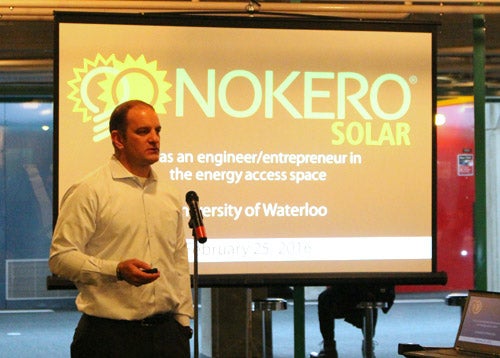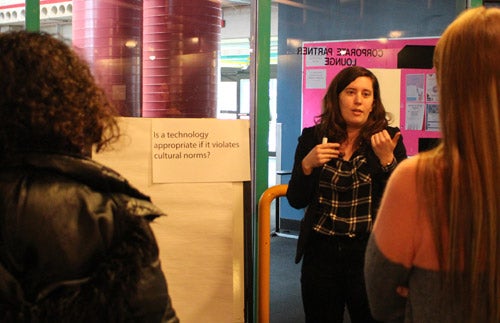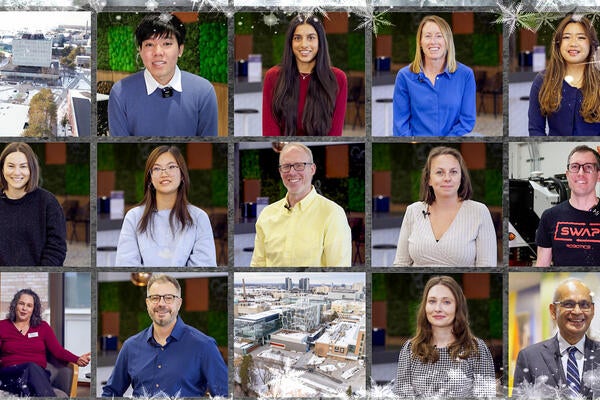
Using Waterloo’s innovation power to make a difference
PowerShift: Rethinking Design for Energy Access connects technology and development work to tackle issues of global energy access

PowerShift: Rethinking Design for Energy Access connects technology and development work to tackle issues of global energy access
By Katrina Schigas Marketing and Strategic CommunicationsIn 2010, a simple idea convinced Steve Katsaros to leave a high-flying career in patent law to found Nokero Solar — a company that brings affordable light to developing communities.
Recognizing that more than a billion people around the world live without reliable access to electricity, he envisioned a simple solution that would help replace costly and dangerous kerosene lamps with affordable, reliable solar alternatives. The lights provide students in developing communities with extra hours to study at night, and offer a reliable light source in critical situations such as in operating rooms.
“If all of us drive our career efforts towards things that matter, things that are right, then the world will start to form into a completely different path than what we’re on right now,” Katsaros says.
On Feb. 25, 2016, Katsaros joined a panel of speakers and researchers at the University of Waterloo for PowerShift: Rethinking Design for Energy Access, where students were encouraged to use innovation to address global problems — specifically, how to create a future where energy is available to all.

Steve Katsaros, Founder and CEO of Nokero Solar
According to Affordable Energy for Humanity (AE4H), a global change initiative led by the University of Waterloo in collaboration with Karlsruhe Institute for Technology, more than one billion people live without access to electricity today and a further billion have unreliable access.
The interactive discussion and design session, hosted by AE4H and the Waterloo Institute for Sustainable Energy (WISE), connected engineers to the value of development work, and addressed the need to develop ultra-efficient and ultra-affordable technologies to combat energy poverty in a sustainable way.
“We want to inspire University of Waterloo students to take a fresh look at global development issues like energy poverty as real career opportunities for them — fields where they can make a tangible difference in the world and where their skills and enthusiasm are urgently needed,” said Nigel Moore, manager of AE4H. “We encourage them to think critically about the wider innovation process and the difficult trade-offs that entrepreneurs of all stripes face when entering the energy access space.”
Nokero, which stands for “no kerosene,” has provided 230 million hours of extra light to communities in the developing world through the distribution of their highly-efficient solar lights. It’s one example of how Katsaros says the world needs to shift how technology is developed and marketed.

Photo credit: nokero.com
“Right now all of the products seem to be created for the very top of the economic pyramid; the things that are sold in U.S. and western retailers,” said Katsaros. “We’re taking that technology and packaging it in a way that is affordable, durable, and easy to distribute, and pushing it to the very base of the economic pyramid.”
However, striving to solve more than just economic problems poses its own unique set of social, cultural, and environmental challenges. Iana Aranda, Director of Programs at Engineering for Change, says technology is only a part of the equation when it comes to implementing a successful solution for energy access.
“If we don’t understand all of the other motivators and all the other drivers around how that solution is actually going to be used, we’ve missed the mark,” she said.
With social science, public health, and environmental perspectives in mind, participants tackled big design questions facing humanitarian innovators:
“Energy access is important for livelihood building and ensuring a quality of opportunities among all world citizens,” said Allison Elgie, a PhD student in the School of Environment, Resources, and Sustainability. “The idea that energy access has to be culturally specific is so important with any development action, but I think in particular with energy.”

Participants engage in a discussion on the big design questions of development work
Engaging in small group discussions centred on these questions, participants raised valuable insights ranging from the changing role of women as technology becomes more accessible, to the viability of technology in the developing world.
“All of these other facets really are critical to ensuring these solutions actually succeed, while still maintaining the best practices of engineering and the rigor that comes with the work that you do,” said Aranda.
Rethinking Design for Energy Access is part of a series of PowerShift activities leading up to the Waterloo Global Science Initiative (WGSI) OpenAccess Energy Summit, taking place at the Perimeter Institute for Theoretical Physics April 24-27. The summit, which is a partnership between the Perimeter Institute and the University of Waterloo, will bring together a multinational, multidisciplinary and multigenerational group of people and facilitate breakthrough conversations addressing electricity provision for energy isolated communities. Join the Waterloo community in discussion on issues of sustainability and energy by following #PowerShiftWR on Twitter.

Read more
Redefining capstone learning by bringing students, faculty and community partners together to tackle real-world challenges

Read more
Here are the people and events behind some of this year’s most compelling Waterloo stories

Read more
A winter holiday message from President Vivek Goel
The University of Waterloo acknowledges that much of our work takes place on the traditional territory of the Neutral, Anishinaabeg, and Haudenosaunee peoples. Our main campus is situated on the Haldimand Tract, the land granted to the Six Nations that includes six miles on each side of the Grand River. Our active work toward reconciliation takes place across our campuses through research, learning, teaching, and community building, and is co-ordinated within the Office of Indigenous Relations.